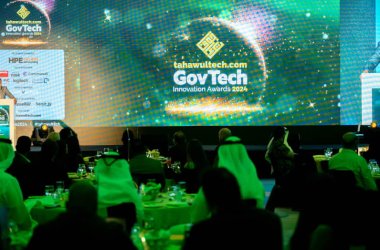Dubai Electricity and Water Authority (DEWA) has appointed Honeywell to help deliver a first-of-its-kind smart energy project in the Middle East, which will see Honeywell provide a further 150,000 smart meters in addition to the 250,000 it has already deployed across Dubai. The multi-million-dollar initiative will enable Dubai to manage electricity use more effectively within the residential sector across the city.
Honeywell’s smart meters support DEWA’s commitment to sustainability and energy efficiency. Unlike traditional meters, smart meters give customers access to detailed and automatic readings of both their current and historical energy usage, allowing them to better understand and control their consumption.
DEWA has set ambitious targets for implementing advanced technologies in line with the strategic direction of UAE Vision 2021 and the Dubai Plan 2021. DEWA expects to have installed more than 1 million smart meters by 2020, covering the whole Emirate, replacing all mechanical and electromechanical meters.
His Excellency Saeed Mohammed Al Tayer, MD & CEO of DEWA said: “The Smart Dubai initiative, launched in April 2013 by His Highness Sheikh Mohammed bin Rashid Al Maktoum, Vice President and Prime Minister of the United Arab Emirates and Ruler of Dubai, and DEWA’s three smart initiatives are fully-aligned to the Dubai Plan 2021, as they will all contribute to the four primary objectives to achieve a smart and sustainable city as laid out in the Dubai Plan 2021. The first is for a smart, integrated and connected city: this will be directly supported by the Green Charger and Smart Grids initiatives. The second is that Dubai be sustainable with its resources, which is supported by the Shams Dubai initiative and the Mohammed bin Rashid Al Maktoum Solar Park. DEWA is committed to ensuring the third objective, that environmental elements are clean, healthy and sustainable, by ensuring sustainability within its vision, mission and operations.”
The Smart Grid is a key component of DEWA’s strategy to develop advanced infrastructure to support Dubai’s efforts to become a smart and happy city. In addition, it supports the Demand Side Management Strategy, to reduce energy and water use by 30% by 2030, and also supports the Dubai Plan 2021.
DEWA’s programmes, initiatives, and awareness campaigns have helped reduce electricity by 19% and water consumption by 28% in the residential sector between 2009 and 2016. Consumption of electricity in the commercial sector has been reduced by 10% and water 30%, and by 15% and 21% respectively in the industrial sector. Educational institutions have decreased their electricity use by 9% and water by 24% over the same period, with government and semi-government buildings making savings of 12% and 21% respectively.
Norm Gilsdorf, Honeywell’s President for the Middle East, Russia, Turkey & Central Asia regions, commented: “We are proud to continue our strategic relationship with DEWA in our combined efforts to make Dubai smarter and more energy efficient. This is a significant opportunity for Honeywell in the region and we believe we are at the forefront of delivering technologies that enable a smarter future for the UAE and wider Middle East. We also congratulate DEWA on its achievements so far in driving sustainability and reducing water and electricity consumption. We look forward to working closely with DEWA to increase efficiency and promote smarter energy use.”
As part of the project, the Honeywell smart meters will deliver easy updates and enhancements, creating a smarter power network and electricity grid. These connected solutions deliver complete smart grid and energy management solutions that drive energy efficiency, operational improvements and cost savings for utilities. A critical aspect of Honeywell’s smart meters are their flexibility and adaptability to different telecommunications technologies, both wired and wireless, such as GPRS, RF and G3 PLC, LPWAN and others. This will be the first project in the Middle East where Honeywell smart electricity meters will utilise an RF communications module.





